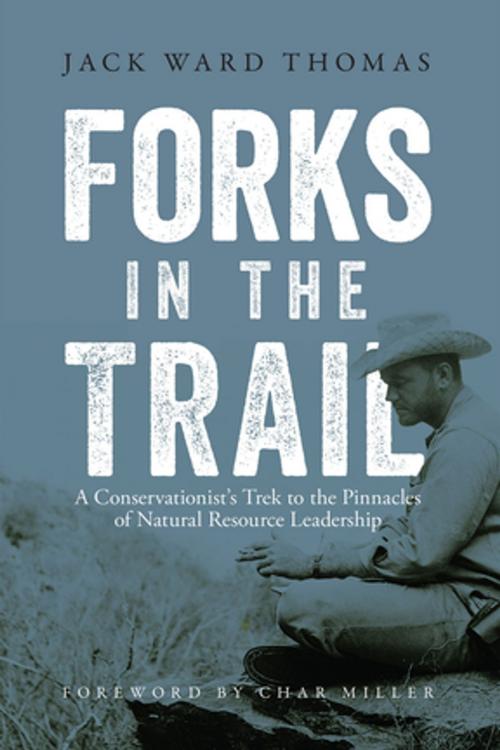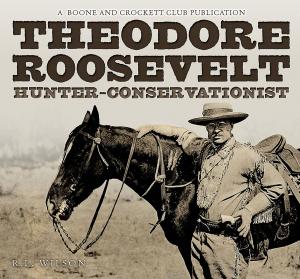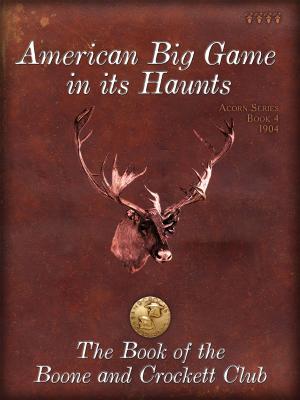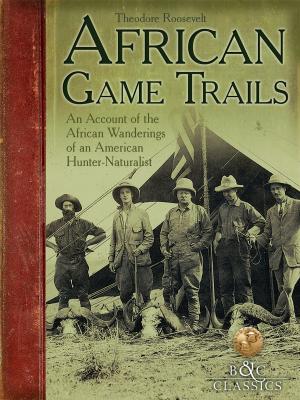Forks in the Trail
A Conservationist’s Trek to the Pinnacles of Natural Resource Leadership
Nonfiction, Science & Nature, Nature| Author: | Jack Ward Thomas, Julie Tripp | ISBN: | 9781940860152 |
| Publisher: | Boone and Crockett Club | Publication: | August 1, 2015 |
| Imprint: | Boone and Crockett Club | Language: | English |
| Author: | Jack Ward Thomas, Julie Tripp |
| ISBN: | 9781940860152 |
| Publisher: | Boone and Crockett Club |
| Publication: | August 1, 2015 |
| Imprint: | Boone and Crockett Club |
| Language: | English |
When Jack Ward Thomas was named chief of the U.S. Forest Service in 1993, only twelve men had ever known the staggering responsibility, political pressure—and extraordinary opportunities to influence the future of America’s natural resources—that came with the job. Theodore Roosevelt had created the agency in 1905, appointing Gifford Pinchot as its first chief. Now Thomas would shoulder the load once borne by two icons of the conservation movement. Forks in the Trail is a collection of stories about the experiences that shaped the values, knowledge, skills, and decisions of a field biologist who came from a hardscrabble Texas farm and eventually rose to the pinnacles of natural resource leadership in Washington, D.C. Thomas arrived at his new post with a unique set of perspectives and experiences. His formal education and decades of forest, range, and wildlife research had prepared him academically. His rural upbringing and passions for nature, hunting, and sustainable use of natural resources had prepared him pragmatically. But it was basic moxie that ultimately equipped Thomas to confront the most controversial conservation topics of the day, from protecting old-growth timber and spotted owl habitat to the deaths of fourteen wildland firefighters in 1994. Thomas’s life is the story of how conservation and natural resources management happened in America during the second half of the twentieth century. But more than just old war stories, timelines, and reiterations of his curriculum vitae, Forks in the Trail offers intensely personal reflections of life lessons—of the “foibles, fears, mistakes, adventures, misadventures, successes, failures, and comedies of errors and ego”—learned along the way to a full, remarkable career. “During my life,” Thomas writes, “I had many adventures, good and bad; achieved beyond my wildest dreams; and, to my lasting chagrin, too often fell short. In the process I learned much; lost often but won some too; suffered the ‘slings and arrows of outrageous fortune’; helped foment some troublesome quandaries; and helped in the resolution of others.” With tales well told, Forks in the Trail reveals a distinctive life and an illustrious career.
When Jack Ward Thomas was named chief of the U.S. Forest Service in 1993, only twelve men had ever known the staggering responsibility, political pressure—and extraordinary opportunities to influence the future of America’s natural resources—that came with the job. Theodore Roosevelt had created the agency in 1905, appointing Gifford Pinchot as its first chief. Now Thomas would shoulder the load once borne by two icons of the conservation movement. Forks in the Trail is a collection of stories about the experiences that shaped the values, knowledge, skills, and decisions of a field biologist who came from a hardscrabble Texas farm and eventually rose to the pinnacles of natural resource leadership in Washington, D.C. Thomas arrived at his new post with a unique set of perspectives and experiences. His formal education and decades of forest, range, and wildlife research had prepared him academically. His rural upbringing and passions for nature, hunting, and sustainable use of natural resources had prepared him pragmatically. But it was basic moxie that ultimately equipped Thomas to confront the most controversial conservation topics of the day, from protecting old-growth timber and spotted owl habitat to the deaths of fourteen wildland firefighters in 1994. Thomas’s life is the story of how conservation and natural resources management happened in America during the second half of the twentieth century. But more than just old war stories, timelines, and reiterations of his curriculum vitae, Forks in the Trail offers intensely personal reflections of life lessons—of the “foibles, fears, mistakes, adventures, misadventures, successes, failures, and comedies of errors and ego”—learned along the way to a full, remarkable career. “During my life,” Thomas writes, “I had many adventures, good and bad; achieved beyond my wildest dreams; and, to my lasting chagrin, too often fell short. In the process I learned much; lost often but won some too; suffered the ‘slings and arrows of outrageous fortune’; helped foment some troublesome quandaries; and helped in the resolution of others.” With tales well told, Forks in the Trail reveals a distinctive life and an illustrious career.















